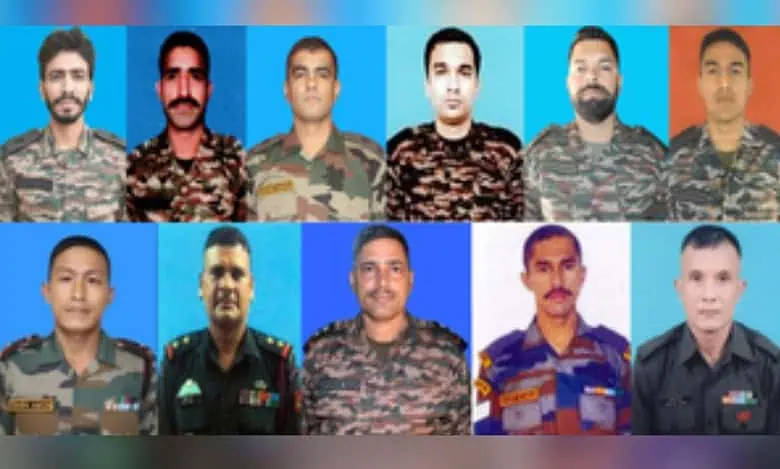
PCI Notice to Caravan Explained
PCI Notice to Caravan Over Story on Alleged Army Torture
Introduction
The Press Council of India (PCI) has issued a show-cause notice to The Caravan over its controversial story titled “Screams from the Army Post,” published in the magazine’s February 2024 edition. The investigative report, authored by Jatinder Kaur Tur, claims that the Indian Army’s Rashtriya Rifles corps tortured civilians in Jammu and Kashmir’s Rajouri and Poonch districts. This story has sparked significant debate, raising questions about press freedom, the role of the media, and the government’s response.

Allegations of Custodial Torture
The focus of the Caravan article is the alleged custodial torture of civilians by the Indian Army. According to the report, on December 22, 2023, 25 men from various villages in Rajouri and Poonch districts were detained and taken to three different army posts. The story claims that the detainees faced severe torture, resulting in the deaths of three individuals. The focus keyword in the report, “custodial torture,” is repeated throughout the detailed narrative, portraying a harrowing account of the events.
Government Orders Removal of Story
Following the publication of the report, the Union Government’s Ministry of Information and Broadcasting (MIB) took action, ordering The Caravan to take down the story from its website on February 12, 2024. The ministry warned that if the directive was not followed, the publication could face a complete blockage of its website. Despite complying with the removal order, The Caravan filed a petition in the Delhi High Court on March 1, challenging the MIB’s order as a severe violation of press freedom and free speech.
Press Council’s Show-Cause Notice
In addition to the MIB’s actions, the ministry filed a complaint with the Press Council of India on March 5, 2024. The PCI, India’s self-regulatory watchdog for the press, responded to the complaint by issuing a show-cause notice to The Caravan on October 1, nearly seven months after the initial complaint. The notice came just days before the expiry of the PCI members’ terms on October 5. The focus keyword, “Press Council of India notice,” was central to the magazine’s subsequent response and public statements.
Caravan’s Stand on the PCI Notice
In response to the PCI’s notice, The Caravan released a press statement, criticizing the council’s decision. The publication argued that the PCI, as a body meant to defend press freedom, should uphold their right to publish stories in the public interest. They labeled the PCI notice a “clear violation of the Act that created the institution,” referring to the Press Council Act of India, 1978. The magazine asserted that the notice, issued while the legal hearing in the Delhi High Court was still ongoing, was “patently illegal.”
Defense of the Report’s Accuracy
Backing its claims, The Caravan emphasized that the story was based on factual information, including accounts accepted by the state government of Jammu and Kashmir, which provided compensation to the families of the victims. The Indian Army has also initiated an inquiry into the incident, with footage purportedly showing evidence of the alleged custodial torture of locals. The focus keyword, “custodial torture allegations,” is reiterated as The Caravan defends the accuracy and authenticity of its report.
Editorial Standards and Journalistic Ethics
The Caravan further highlighted the rigorous editorial and fact-checking processes that the story underwent before publication. The magazine described its report as “meticulous and evidence-backed,” and reiterated its commitment to maintaining high journalistic standards. The focus keyword, “high standards of journalism,” is used to stress the credibility and integrity of the investigative piece.
Appeal to PCI for Press Freedom
In its appeal to the PCI, The Caravan urged the council to protect the rights of journalists who bring to light serious human rights issues in India, such as those reported in the February 2024 edition. The magazine expressed hope that the PCI would prioritize press freedom rather than contributing to what it described as the “suffocation of press freedom in India.” This aspect of the ongoing debate over the focus keyword, “press freedom in India,” remains a central theme in the dispute between The Caravan and regulatory authorities.
Conclusion
The case of the PCI notice to The Caravan over its story on alleged custodial torture has drawn attention to the delicate balance between national security concerns and press freedom. As the legal proceedings continue, the issue remains a significant point of contention in India’s media and political landscape. Whether the Press Council of India will stand by its notice or support The Caravan‘s plea for press freedom is a decision that could have lasting implications for journalism in the country.
Disclaimer:
The content provided here is based on publicly available information and media reports. The article is for informational purposes only and does not intend to endorse or criticize any individual, organization, or entity. Readers are encouraged to consider multiple sources for a balanced understanding of the events discussed.


